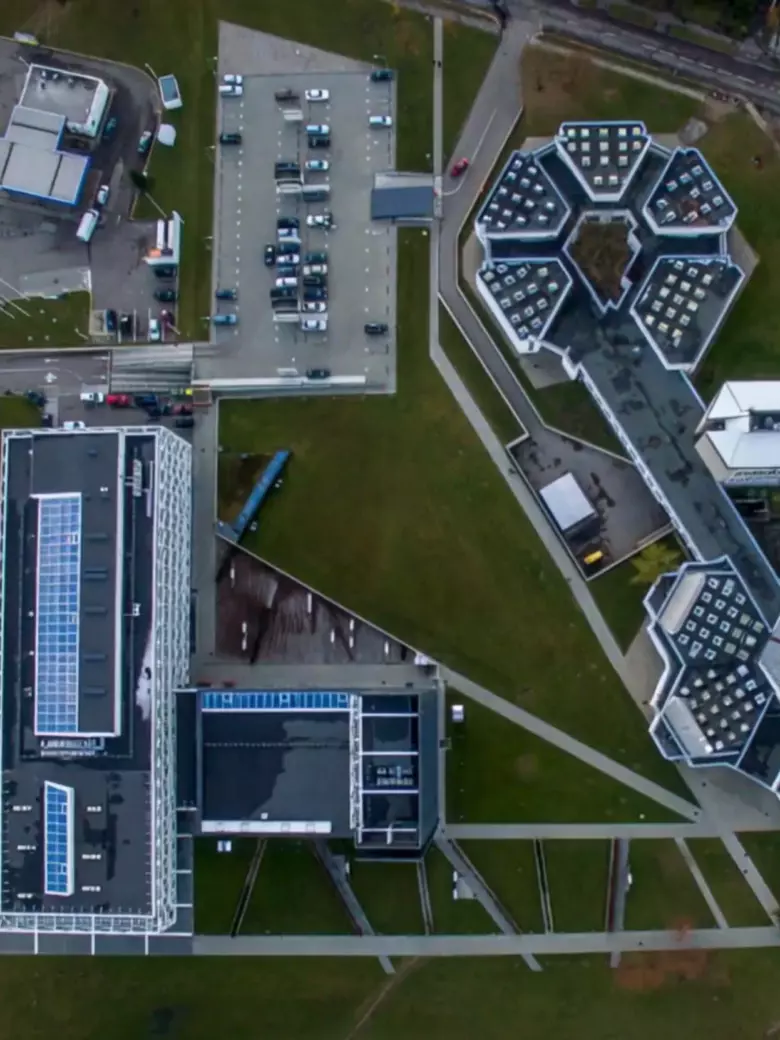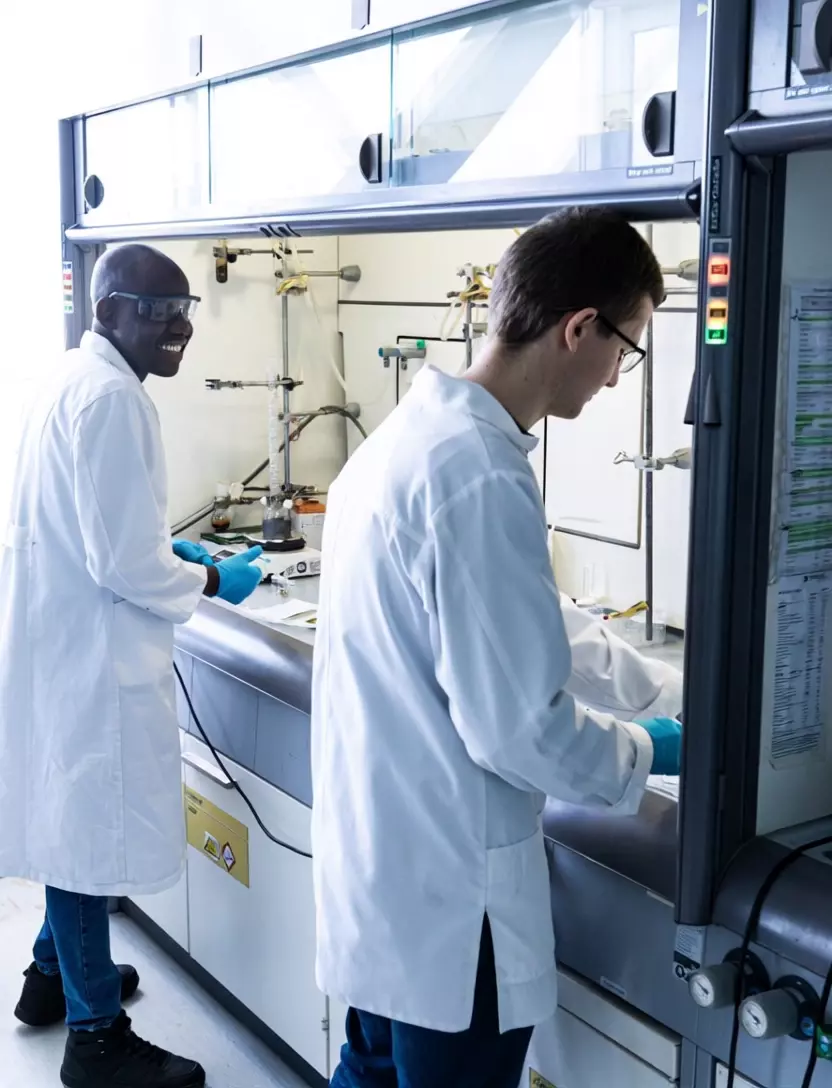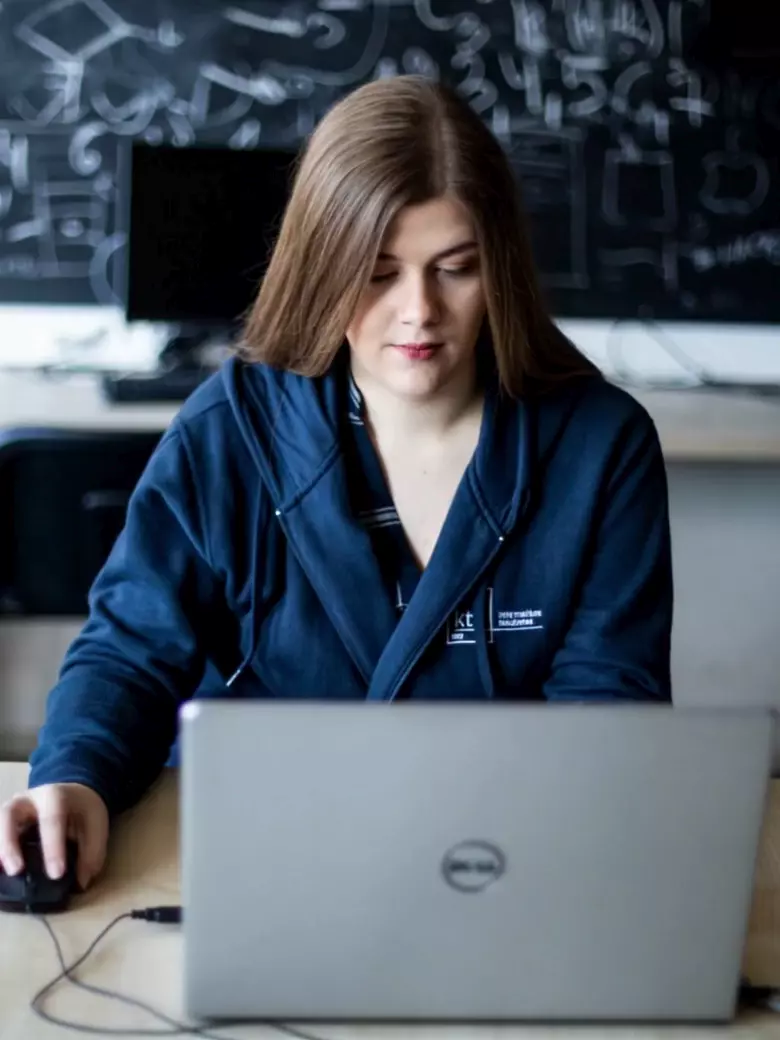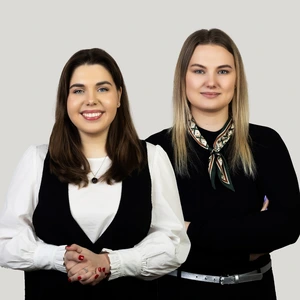The programme is only conducted in Lithuanian language. Entry requirements for this particular programme can be found in the programme description provided in Lithuanian language.
in Lithuanian
Today’s food industry needs people who can generate ideas and put them into practice. This Masters is designed for those who are passionate about finding innovative technological, engineering and business solutions. It prepares professionals who are skilled in developing and delivering food products that meet consumer needs, and in addressing quality and safety management challenges using the latest technological and engineering advances. The Food Technology and Innovation programme not only teaches you how to design and manage food production processes, taking into account their impact on people and the environment but also prepares you to meet the real challenges of sustainable development in the food industry. These are international master’s degree programmes with the ASIIN seal and EQAS-Food Label quality marks.

Employers value graduates who have a good understanding of food technology, new product development and market introduction, economic evaluation principles, food safety and quality management systems. They are also valued for their ability to design, develop, implement and manage production processes in food business enterprises.

You will develop your practical skills in state-of-the-art laboratories for food chemistry and analysis, microbiology, rheology and food businesses.
You will put your innovative product ideas into practice in the laboratories of the Centre of Excellence for Food Science and Technology, working alongside experienced experts and food business representatives.

You will gain practical skills to effectively design and innovate, and to manage your company’s design processes. You will learn how to carry out techno-economic feasibility studies, calculate the need for materials, technological equipment, production space and energy, and assess the financial and economic viability of a project.

In this programme, students can choose food technology, where they will deepen their competencies and decide which new product they will design and develop in the laboratory.
Develop original ideas and methods to solve challenges in food business design, food product development, quality and safety management. Coordinate new projects, implement innovative production technologies and lead multidisciplinary teams in food businesses.
You will gain the skills to develop innovative food products tailored to consumer needs, design and manage advanced food technologies and processes informed by the latest developments in food technology and engineering, and oversee the implementation of food safety and quality management systems. You will also be prepared to make informed technological, engineering, and economic decisions, considering their impact on both society and the environment.
Graduates can pursue a wide range of career opportunities:
Organises, coordinates and optimises production processes, is responsible for the implementation of production plans, the allocation and efficient use of resources and the analysis of the results obtained. Coordinates the preparation and implementation of various technological projects in the food industry, liaising with various institutions in the preparation of project documentation.
Organises the work of the safety and quality department, prepares and manages documents related to process and product safety and quality, represents the company in external audits and organises internal audits. Organises the work of the analytical laboratory and coordinates interdisciplinary research and development projects.
Manages the new product design and development department, seeks out and tests innovations, collaborates with production, commercial and marketing departments, scientific institutions and R&D centres.
They also co-ordinate interdisciplinary research and development projects and contribute to public opinion in the areas of food science, safety and nutrition.
| Module name | Credits | Method of organisation |
|---|
| Food Law | 6 | Blended learning |
| Food Quality and Safety Management | 6 | Blended learning |
| Innovation Economics | 6 | Blended learning |
| Innovative Food Processing and Packaging Methods | 6 | Blended learning |
| Catering Science and Technology | 6 | Blended learning |
| Cereal and Confectionery Science and Technology | 6 | Blended learning |
| Dairy Science and Technology | 6 | Blended learning |
| Fermentation Science and Technology | 6 | Blended learning |
| Fisheries Science and Technology | 6 | Blended learning |
| Fruit and Vegetable Science and Technology | 6 | Blended learning |
| Meat Products Science and Technology | 6 | Blended learning |
| Science and Technology of Oils and Fats | 6 | Blended learning |
| Sugar and Starch Science and Technology | 6 | Blended learning |
| Module name | Credits | Method of organisation |
|---|
| Food Factory Design | 9 | Blended learning |
| Launching of New Products to the Market | 6 | Blended learning |
| New Food Product Development | 6 | Blended learning |
| Research Project and Practice | 9 | On-campus learning |
| Module name | Credits | Method of organisation |
|---|
| Master’s Degree Final Project | 30 | On-campus learning |
The programme is only conducted in Lithuanian language. Entry requirements for this particular programme can be found in the programme description provided in Lithuanian language.
in Lithuanian
After graduating with a bachelor’s degree, I wanted to expand my business in food industry, but I felt that I still lacked the knowledge and competencies, so I couldn’t take the risk. For my master’s I chose the KTU Food Technology and Innovation study programme, which provides in-depth knowledge of both food technology and business management. It is essential for business success, and I will strive to apply the knowledge and skills in my business.
After graduating from KTU, I quickly got a job in food industry. The theoretical knowledge and practical skills I acquired during my studies perfectly matched the needs of the job market. The university taught critical thinking, problem solving and an innovative approach, which not only made it easy to start a career, but also helped me to climb up the career ladder quickly.
What sets KTU graduates apart is their strong engineering-technological abilities and logical thinking. They are motivated, receptive to innovation and have the ambition to climb the career ladder. The wide range of study modules and the acquired knowledge can be easily applied in the workplace and are suitable for a variety of positions. Graduates of this study programme are always welcome in our company, where they can easily find a place to work, both as a work placement when studying and in a permanent position.
This programme is taught exclusively in the Lithuanian language. All lectures, seminars, coursework, and assessments are conducted in Lithuanian.
Graduates of the Food Technology and Innovation programme can become technologists or production managers in food companies, specialists or project managers in design companies, specialists or managers in analytical laboratories, specialists or managers in food safety and quality, experts, scientists, etc. Graduates can also work in multinational companies, develop start-ups and pursue PhD studies.
The Food Technology and Innovation programme focuses on the development of sustainable and innovative food products using advanced technologies and engineering and business decision making. Students gain practical skills in state-of-the-art laboratories, have the opportunity to collaborate internationally and prepare for a career in the global food industry, working with leading companies.

Talk to us, study with us:
K. Donelaičio St. 73, LT-44249 Kaunas
phone +370 679 44 555
email studijos@ktu.lt
Faculty of Chemical Technology
IV Chamber
Radvilėnų pl. 19, LT-50299 Kaunas
email ctf@ktu.lt
 virtual tour
virtual tour